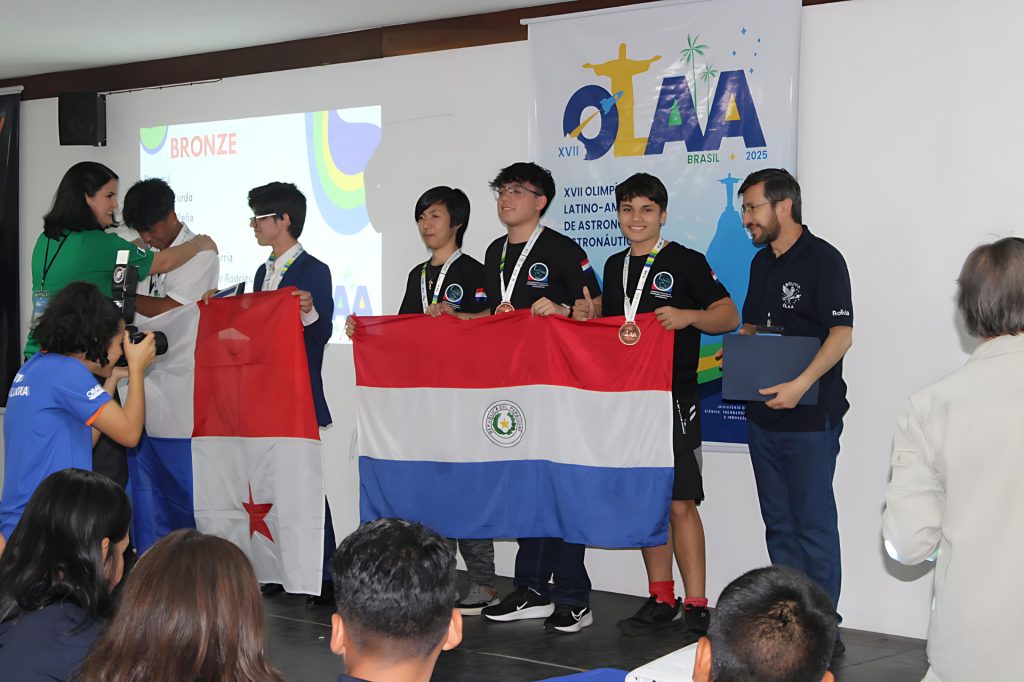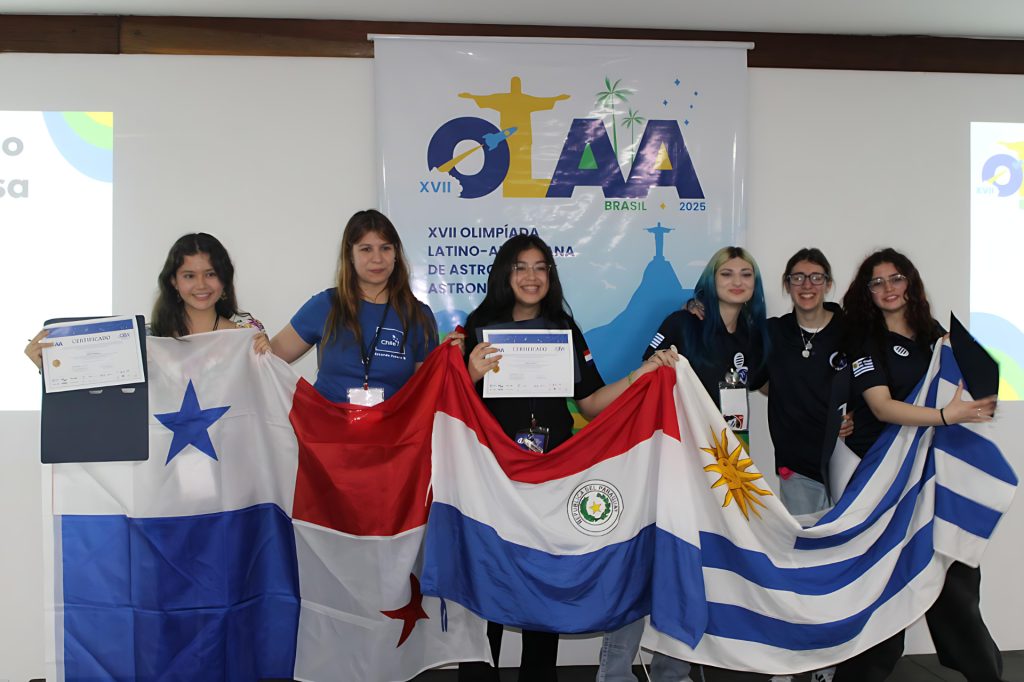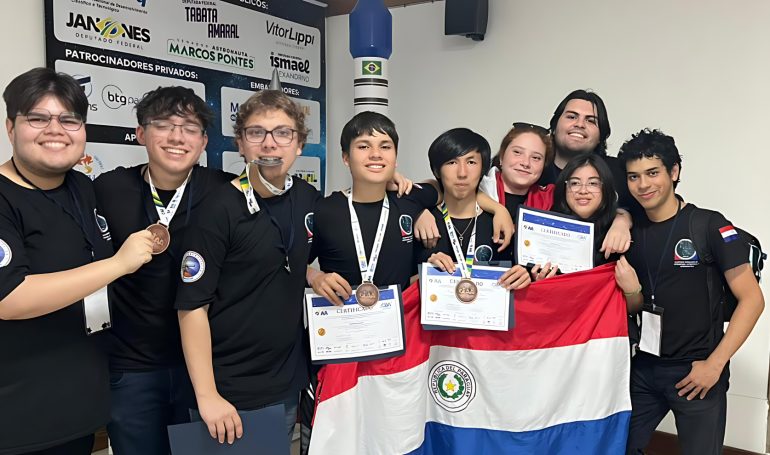Paraguay shone at the XVII Latin American Olympiad of Astronomy and Astronautics (OLAA 2025). The event was held from 1 to 7 September 2025 in Rio de Janeiro and Barra do Piraí, Brazil. The Paraguayan national team returned with a silver medal, three bronze medals and one honourable mention. The achievements highlight Paraguay’s growing talent in science education and international competition.
The Olympiad brings together secondary students from across the region to test their knowledge in astronomy, physics and space sciences. The event not only identifies outstanding talent but also fosters collaboration, ethics and camaraderie among young scientists.
Road to excellence
Behind these medals is a demanding process led by the Paraguayan Astrophysics Club through the Olympiad of Astronomy, Astrophysics and Astronautics (OPAAA). “Hundreds of students take theoretical exams each year, with the top 33 entering an intensive 800-hour training programme,” explains Fernando Cáceres, leader of the Paraguayan delegation at OLAA 2025.
The final five representatives are selected through rigorous testing, while two more act as reserves. According to Cáceres, the Olympiad relies entirely on volunteer instructors, many of them former competitors now studying at universities such as Swarthmore College, Vanderbilt University, Universidad Columbia and UNA. “They are our stars,” he says, adding that families also play a crucial role in providing support, particularly when funding is scarce.
Faces behind the success in OLAA 2025
The Paraguayan team included Sebastián Zayas (17, silver), Leonardo Muniagurria (16, bronze), Renato Chorro Roger (18, bronze), Miguel Rodríguez (18, bronze) and Jazmín González (14, honourable mention). For Fernando, what sets them apart is their curiosity, empathy and teamwork: “They are collaborative, supportive and truly passionate,” he expresses.
Students earn their medals through four tests: an individual theory exam, a group theory challenge with peers from other countries, rocket design and launches, and an observational exam held partly at the Rio de Janeiro Planetarium and partly under open skies. Combined scores from all areas decide the final rankings.
Cáceres, himself a former Olympiad participant, described the experience as deeply emotional. He stressed that Paraguay’s students compete on equal footing with peers from countries where astronomy is taught at university level. “Seeing them enjoy, connect and give their all to put Paraguay in such a high place is indescribable,” he reflects.


Challenges and community support
This year the team faced logistical and financial hurdles. Without government funding, the delegation covered training and travel to Brazil through raffles and community support. “Paraguayans are incredibly resourceful,” Fernando notes. “Even without funds, we proved that commitment and collaboration can deliver excellent results.”
Cáceres was joined by co-leader Roberto Sánchez and observers Juan Ángel Venegas (instructor). He was also joined by instructor Sabrina Larré and Katherine Neal who supported the delegation throughout the competition. For the leaders, the Olympiad was also an opportunity to connect with universities, observatories and scientific institutions across the region, strengthening long-term cooperation in science outreach.
Inspiring the next generation
The impact of OLAA 2025 goes beyond medals. The leader believes these achievements raise awareness of astronomy in a country where the field is still little known. He hopes they inspire more students to pursue STEM (science, technology, engineering and mathematics) and strengthen Paraguay’s scientific growth. “My students give hope. They are like stars, proving we can dream and achieve,” he says.
Looking ahead, the OPAAA is seeking greater visibility and support to strengthen its work. The organisers hope to secure scholarships, promote the creation of a formal astronomy degree in Paraguay, and attract financial backing from companies and institutions. With each step, its volunteers and students reaffirm that science can be a transformative force for the nation’s future.
Read more: Also in robotics Paraguayan students excel. In a remarkable display of ingenuity, Paraguay’s UPSP1 robotics team clinched three prestigious awards and a top-fourth global ranking at the 2025 VEX Robotics Tournament in Dallas, Texas.


